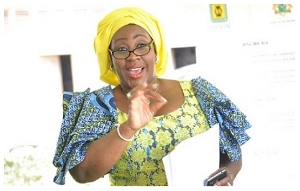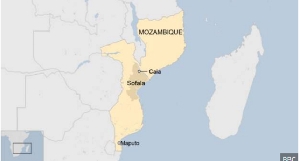- Home - News
- TWI News | TV
- Polls
- Year In Review
- News Archive
- Crime & Punishment
- Politics
- Regional
- Editorial
- Health
- Ghanaians Abroad
- Tabloid
- Africa
- Religion
- Election 2020
- Coronavirus
- News Videos | TV
- Photo Archives
- News Headlines
- Press Release
Opinions of Sunday, 26 November 2006
Columnist: Asigri, D. Z.
Plagiarism Re-visited
The above concept-‘Plagiarism’ is not a new vocabulary amongst many Ghanaians today following the recent withdrawal of MP Haruna Iddrisu’s MPHIL degree which drew a lot of media interest. It is a shame though that political ideological sentiments flavoured this academic issue. Perhaps it can be argued that Haruna’s political stance called for his work which gained him his degree five years ago to be reviewed once again microscopically merely to identify any offending academic organism in his thesis left untouched. This might have been a painstaking venture by the Academic Board!
This article is not an attempt to negate the approach/es adopted by the Board but to highlight as to what constitutes plagiarism-a final academic judgement of which can lead to a painful experience and mental turbulence if possible by the affected student.
But what is Plagiarism?
Many definitions can be found within the research literatures, but:
Take extra care to ensure you do not find yourself caught up in this academic spider’s web which you will find it very hard to entangle and referred to as ‘the sin of plagiarism’ .
I know that you will try to be meticulous in effectively noting down sources, be clear in your quotations, paraphrasing your own thoughts as well as acknowledging sources.
It is advisable to ensure that you are aware of, and followed your college’s guidelines on plagiarism. For example, the University of Manchester (1997:1) defines plagiarism as ‘the theft or expropriation of someone else’s work without proper acknowledgement, presenting the material as if it were one’s own’, and warns that ‘plagiarism is a serious academic offence and the consequences are severe’. Once again, academics are humans too and the right to their own judgements!
The production of careless writing and discourtesy to actual cheating can be seen as plagiarism. Equally, your formally assessed assignments, your written examination and your thesis must be your own and any quotation from the published or unpublished work of others can be acknowledged. These have got to be properly acknowledged sources or it can constitute an examination offence.
Student-supervisor relationships:
This process calls for good human relationship building in order to foster a good learning environment to both the student and his/her supervisor. From my experience, I have occasionally heard students complain during coffee break time (the notion of coffee table gossip), as identified by Prof. David Hargreaves (1967) that, they are getting a raw deal from their supervisors, in some cases they may have been right-not always though! But, supervisors are only human-some very busy with other students in need too!
What I am trying to say is that student supervision is not and cannot be a ‘one-man-band’! The issue here is not to lay blame one way or the other but rather to consider was of avoiding conflict if at all possible (as in Haruna’s case).











